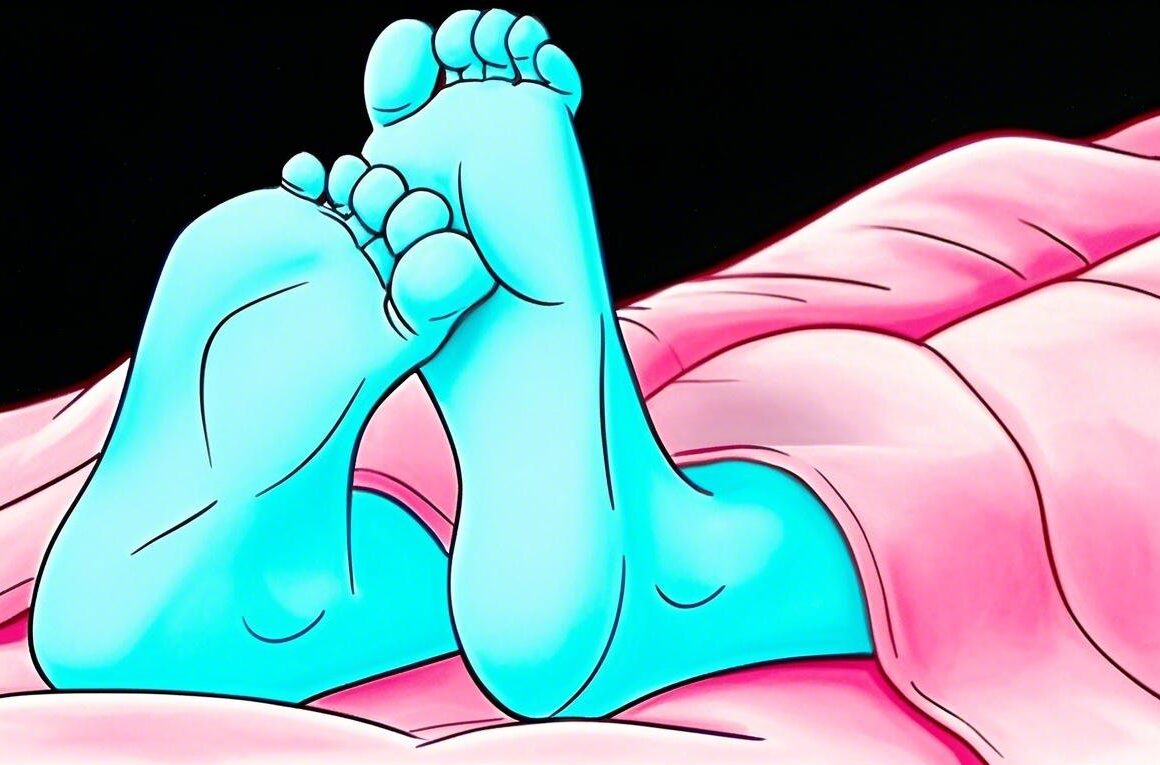Introduction
Ever wondered if you should sleep with socks or no socks? You’re not alone. This cozy little debate has sparked countless opinions, heated arguments, and even scientific studies. Some folks swear by warm toes, while others can’t stand the thought of bundling up their feet. So which is best?
Let’s pull back the covers and dive into what the research — and real-life experience — says about it.
Understanding How Sleep Works
The Role of Body Temperature in Sleep
Your body has a natural rhythm, and part of that includes cooling down when it’s time to rest. The drop in core temperature signals your brain that it’s time to wind down and drift off. And believe it or not, your feet play a big role in that process.
The Circadian Rhythm Explained Simply
Think of your circadian rhythm as your body’s internal clock. It knows when to wake up, when to feel sleepy, and when it’s time to hit the hay. Temperature changes, especially in your extremities (like your feet), tell this clock what time it is.
Why Your Feet Matter at Bedtime
Feet have a lot of blood vessels close to the surface. When they’re warm, these vessels dilate, helping your body release heat and fall asleep faster. That’s why your foot temperature can impact how easily you fall asleep.
The Case for Sleeping With Socks On
Improved Circulation and Faster Sleep
Wearing socks to bed helps dilate blood vessels in your feet — a process known as vasodilation. This allows your body to cool down faster, helping you fall asleep more quickly and sleep more deeply.
Socks and Body Temperature Regulation
Keeping your feet warm can help your core temperature drop. That might sound backward, but when your blood vessels expand, they allow your body to release heat — a key trigger for sleep.
Helps With Insomnia and Raynaud’s Disease
Warm feet aren’t just cozy — they’re therapeutic. People who struggle with insomnia or conditions like Raynaud’s disease often find relief by wearing socks at night.
What Is Raynaud’s Disease?
It’s a condition where blood flow to certain parts of the body — like fingers and toes — is restricted, often due to cold. Wearing socks can help prevent nighttime episodes and promote better rest.
The Case for Sleeping Without Socks
Freedom and Breathability
Some people just can’t stand the feeling of wearing socks in bed. If you’re someone who loves the feeling of sheets against bare feet, you’re not wrong — comfort is key to great sleep.
Overheating and Sweaty Feet
Too much heat can be just as bad as too little. If you tend to overheat or sweat at night, socks might make things worse, especially if they’re too thick or made of synthetic material.
Better for Skin Health and Hygiene
Letting your feet breathe overnight can prevent fungal infections and bad odors, especially if you’re prone to sweaty feet. Just make sure your sheets are clean and cozy.
Scientific Perspective
What Research Says About Socks and Sleep
Studies suggest that people who warm their feet before bed fall asleep faster than those who don’t. One study found that people who wore socks fell asleep 15 minutes faster on average.
Studies on Vasodilation and Sleep Onset
Vasodilation (expanding of blood vessels) in the feet improves blood flow and sleep onset. Warm feet trick the brain into thinking the body is ready for sleep — and it usually is.
Hormonal Benefits of Foot Warmth
There’s evidence to suggest that warming your feet can help release melatonin, the sleep hormone. It’s all tied into that temperature-regulation system we mentioned earlier.
Personal Comfort and Lifestyle Factors
Climate and Room Temperature
Live in a cold climate? Socks might be a no-brainer. In warmer places, it might feel like overkill. Adjust based on the season and your bedroom temp.
Sock Material and Thickness
Choose breathable fabrics like cotton, wool, or bamboo. Avoid polyester or anything that traps moisture.
Personal Preferences and Psychological Comfort
Some people associate socks with coziness and safety. Others can’t stand them. What matters most is how you feel.
What Type of Socks Are Best for Sleep?
Natural Fibers vs Synthetic Materials
Natural fibers like merino wool, cotton, or bamboo are breathable and help regulate temperature without making you sweat.
Compression Socks: Helpful or Harmful?
Generally, avoid compression socks unless prescribed. They can restrict blood flow during long sleep periods.
Avoiding Tight or Restrictive Socks
Always go for loose-fitting sleep socks. Anything too tight could cut off circulation and do more harm than good.
Alternatives to Wearing Socks
Heated Blankets and Warm Foot Baths
A 10-minute foot soak in warm water before bed can work just as well as socks.
Layered Bedding for Temperature Control
Add extra blankets at your feet or use a hot water bottle.
Foot Massage and Relaxation Techniques
Try a relaxing foot rub before bed — it not only warms you up but also releases tension and stress.
Tips for Better Sleep Overall
Create a Relaxing Nighttime Routine
A warm shower, calming music, or dim lights can help signal to your brain that it’s time to wind down.
Limit Screen Time Before Bed
Blue light from screens messes with melatonin. Power down at least 30 minutes before bed.
Ideal Sleep Environment Setup
Cool room, dark surroundings, and minimal noise — that’s the magic combo.
Who Should Definitely Avoid Sleeping in Socks?
People With Circulation Issues or Diabetes
Tight socks can reduce circulation and increase health risks. Always talk to your doctor.
Skin Conditions or Fungal Infections
Letting your feet breathe can prevent flare-ups and keep your skin healthy.
Who Benefits Most From Sleeping With Socks?
People in Cold Climates
Cold toes can keep you awake. Socks help regulate your temperature and provide comfort.
Those Struggling With Falling Asleep
If sleep doesn’t come easily, warming your feet could be a simple trick worth trying.
Kids and Socks During Sleep
How Children’s Sleep Differs
Children lose heat faster than adults, and they often kick blankets off. Cozy socks can help keep them warm.
Tips for Parents on Keeping Kids Cozy
Use soft, breathable socks and monitor the room temp. If they wake up sweaty, adjust accordingly.
Final Thoughts: To Sock or Not to Sock?
There’s no one-size-fits-all answer. The best choice depends on your personal comfort, sleep habits, and climate. What matters most is that you sleep soundly — with socks, without socks, or with one sock lost somewhere under the covers.
Conclusion
So, should you sleep with socks or go barefoot? The answer is: it depends. If your feet get cold and you’re struggling to fall asleep, socks might be your new bedtime best friend. But if you’re a hot sleeper or love the feel of cool sheets, bare feet could be better. Try both and see what helps you sleep like a baby.
FAQs
Is it bad to sleep with socks on every night?
Nope — as long as they’re clean, breathable, and not too tight, it’s totally fine.
What are the best socks for sleeping?
Look for lightweight, natural materials like cotton or merino wool.
Can sleeping with socks help me fall asleep faster?
Yes! Warm feet help trigger the body’s natural sleep response.
Do socks affect sleep quality?
They can — in a good way. Warmer feet often mean deeper, more restful sleep.
What if my feet get too hot at night?
Try thinner socks or warm your feet before bed and then take them off once you’re cozy.

